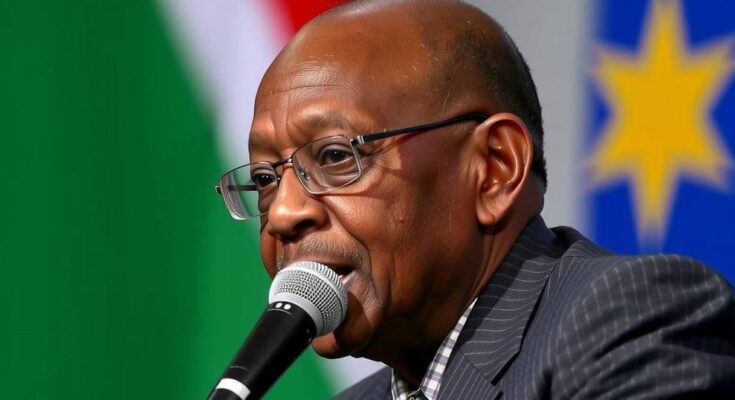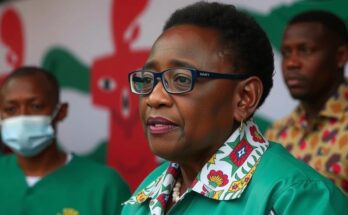On November 1, 2024, Botswana’s President Mokgweetsi Masisi conceded defeat in the elections, ending the BDP’s 58-year rule. The preliminary results show the BDP in fourth place, with the UDC leading. This marks a significant political shift and a growing demand for change among the electorate.
On November 1, 2024, Botswana’s President Mokgweetsi Masisi officially acknowledged his defeat in the recent electoral contest, marking a significant shift in the nation’s political landscape. This concession signifies the conclusion of the Botswana Democratic Party’s (BDP) dominance, which has persisted for nearly six decades. Preliminary election outcomes indicate that the BDP has fallen to fourth position, with the opposition party, the Umbrella for Democratic Change (UDC), emerging as the frontrunner. This development reflects a notable change in public sentiment and a demand for new leadership in Botswana.
The political history of Botswana has been significantly influenced by the BDP, which has been the ruling party since the nation’s independence in 1966. Under its governance, Botswana has experienced notable economic growth and stability. However, recent elections have illustrated a growing dissatisfaction among the electorate, leading to rising support for opposition parties. The UDC’s success in the current election underscores the shifting dynamics and the electorate’s desire for change.
In conclusion, the concession of President Mokgweetsi Masisi signifies a pivotal moment in Botswana’s political history, as it ends an uninterrupted 58-year rule by the BDP. The electoral results demonstrate a shift in public opinion, favoring opposition parties, particularly the UDC. This transition may herald a new era for Botswana, with potential implications for its governance and policies moving forward.
Original Source: www.aljazeera.com




